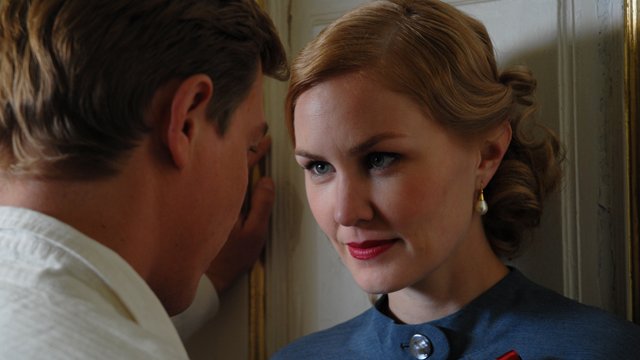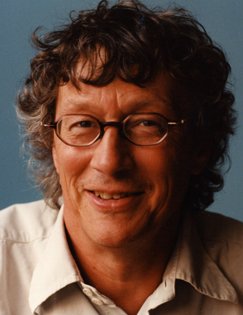Knut Erik Jensen
Knut Erik Jensen was born October 8th 1940 in Honningsvåg, a small coastal town in the far north of Norway. On account of the occupying German forces enforcing the tactics of ”scorched earth” during their retreat from Northern Norway the winter of 1944-1945, and evacuated most of the population further south, Jensen spent some of his early years in the evacuee-camp Trondenes nearby Harstad. After WWII Jensen also witnessed the ensuing Cold War and its effects first hand, again due to his native soil, seeing as his home county of Finnmark became a vital strategic area, due to sharing a 196 km long border with the Soviet Union.
His childhood experiences, along with his close ties to northern coastal Norway, its wild landscapes and harsh climate conditions, the distinctive spirit of its population , and the regions foundations in the fishing-industries (Jensen himself the son of a fisherman), have influenced Jensen greatly as a filmmaker, and have had a profound impact on his films - both thematically and stylistically. By his own words, Jensen makes films about ”the sea, the fish, love and death”.
Jensen moved to Oslo for his University education, and after studying French, Russian and history – including a year in Russia, made possible by a scholarship - Jensen attended the London International Film School for one year, graduating in 1973 with his debut film Andrew (1973), about a London eccentric.
His breakthrough as a documentary filmmaker came in 1974 with his third documentary Farewell, Old Kjellvikfjell , about the lives of three bachelors living in a mostly depopulated fishing village in Finnmark. The film has since been described as "one of the high points of Jensen’s film career and one of the most important Norwegian films of the seventies" by Gunnar Iversen, Professor of Film Studies at the Norwegian University of Science and Technology in Trondheim. In 1978, Jensen joined the permanent staff of the Norwegian Broadcasting Corporation (NRK), and has since then made numerous documentaries and short films for NRK, as well as independently. The three shorts Svalbard in the World (1983), Cold world (1986) and My World (1987) may be considered artistic pinnacles from this period, while Finnmark Between East and West (1986) is a monumental documentary series documenting the history of Finnmark through World War Two and the ensuing time of peace.
In 1993 Jensen made his feature film debut with the critically acclaimed Stella Polaris, for which he also wrote the screenplay. Often described as a poem from - and for – Finnmark, Stella Polaris conveys to its audience central parts of the region's history through 40 years, through one woman's memories and dreams. Mental states, moods, and feelings took precedence over story and classical narrative in a very visual film, clearly marking Jensen as a distinct and autonomous filmmaker. Stella Polaris became a favourite on the international festival-circuit and was awarded numerous awards. Amongst others, the film was named Best Film of the Year by The Norwegian Film Critics Association in 1993 and won the FIPRESCI Award at the Karlovy Vary festival in 1994.
Through the 1990s Jensen continued his work for NRK, directing several documentaries, short films and three television single dramas, as well as continuing his work in cinematic feature films. Burnt by Frost (1997) and Passing Darkness (2000) further established Jensen's distinct style as a filmmaker, stylistically and – perhaps even more so – thematically.
In 2001 Jensen had his biggest audience hit and box-office success to date, launching the prolific and poetic documentary feature Cool & Crazy. Again documenting aspects of life in Finnmark, Jensen this time focused on the all-male voice-choir Berlevåg Mannsangforening (founded 1917) in the small fishing village of Berlevåg. The film became one of Norway's biggest box-office successes ever, a favourite amongst critics and yet another festival hit for Jensen. The film's success even garnered a sequel, seeing the choir travel to New York, which – though not as well received as the first film – has become an important document as one of the early filmic portrayals of the attacks of 9/11, and the effects of these on the city of New York. 2008 saw Jensen again returning to feature film, with the release of Ice Kiss, telling the dramatic story of Norwegian KGB-spy Gunvor Galtung Haavik - again utilizing his unique poetic narrative style.
In January of 2011 Jensen's 70th birthday was celebrated by the Norwegian Film Institute with a retrospective program at the Cinematheque in Oslo, including a pre-premiere of his latest documentary feature Det akutte menneske (The Acute Human), over three months before its official April release.
In addition to receiving numerous awards for his films, as well as other achievement-awards, Jensen has also been bestowed upon a number of civil awards, notably cultural awards from his hometown of Honningsvåg and home county of Finnmark. His most honorable civil distinction was bestowed upon him September 12th, 2008 with his appointment to Knight, 1st Class, of the Royal Norwegian Order of St. Olav. Knut Erik Jensen has for many years been one of Norway's most acknowledged, prolific and polemic directors, both as a documentarist and as a feature filmmaker.
Having passed 70 years of age in 2011 Jensen shows no intent to ”back down” and continues to be a strong, uncompromising and headstrong - yet still warm an humorous - voice in the Norwegian film- and television landscape.


